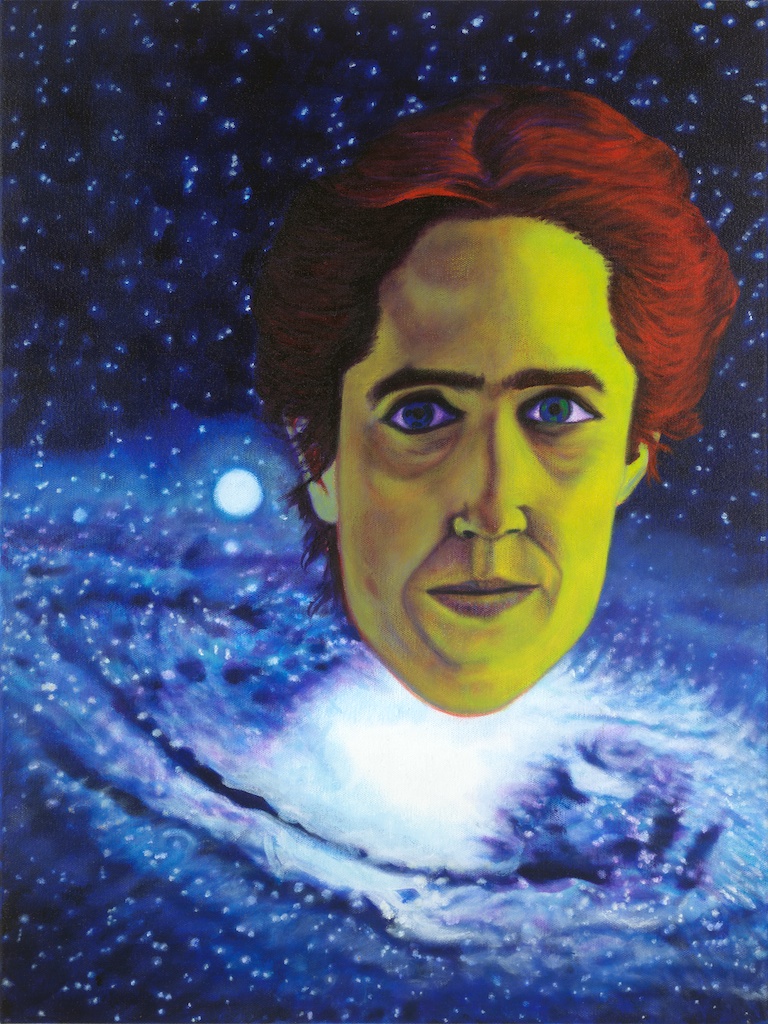Henrietta Swan Leavitt
Astronomer
1868-1921
acrylic on canvas
768 × 1024
Dear You,
One day I woke up deaf. I had been sick, of course. It was winter at Oberlin College and walking to classes in the snow in my long dress gave me the chills, which led to fever. I returned home to get well. I woke one morning with my mother in my room. I could see her mouth moving but I couldn’t hear what she was saying. I asked her to speak up and that’s when she got the doctor.
My hearing aid helped, but I had to drop my dreams of getting a music degree. I was furious with myself to get so ill. I wished my body were as strong as my mind.
Through a friend, I got a job as a “computer” at Harvard Observatory. My principle task was to identify stars. Decipher how bright they were. I studied these stars as millions of bright blobs on fragile glass plates. For countless hours I studied stars, often well into the night. When I really needed to concentrate, I took out my hearing aid. The engulfing silence was bliss. I became one with my work.
In my184-page published report on the North Star Sequence, I combined data from 299 photographic plates taken by 13 different telescopes. It was the biggest challenge of my life as every magnitude had to be checked and crosschecked. It took me four years. But that was not my biggest accomplishment.
It was my work on the variable stars in the Magellanic Clouds that I made a theoretical leap. Variable stars waxed and waned in brightness like slow- motion beacons. Some of the variables completed a cycle every few days, others weeks or months. My job was not to speculate why, although I did. I noticed that the brighter variables have the longer periods, which meant you could judge a star’s true brightness from the rhythm of its beat. Then you compare that with its apparent brightness and estimate how far it was.
My theory was proven after my early death from stomach cancer. Edwin Hubble used my luminosity-period relation for Cepheids to determine that the Universe was expanding. In 1925, a Swedish mathematician wrote me a letter. He wanted to nominate me for the Nobel Prize. He didn’t know I had died. Although I admire modesty, I am thrilled to know my work was noticed.
Love,
Henrietta
